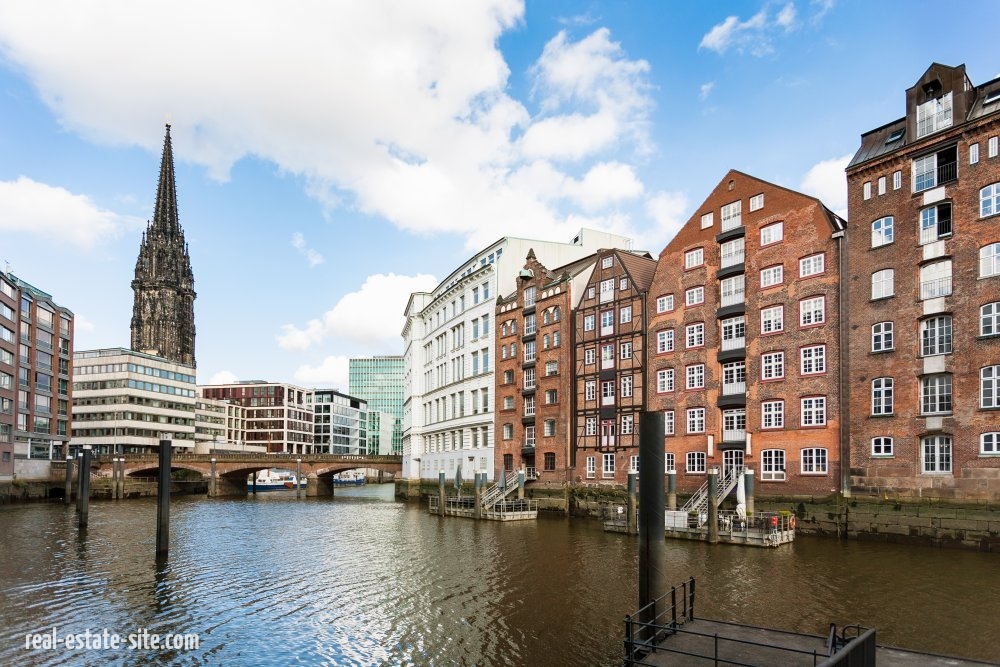Hamburg, the second-largest city in Germany and a major economic hub, boasts a vibrant residential real estate market. With its rich history, diverse culture, and strong job prospects, the city has become a highly desirable destination for individuals and families seeking quality living standards. This article delves into the current state of the residential real estate market in Hamburg, exploring its trends, challenges, and opportunities.
- Economic Factors:
Hamburg’s robust economy significantly influences the residential real estate market. The city enjoys a diverse economic base, comprising industries such as logistics, media, technology, and aerospace. The presence of multinational companies, research institutions, and educational establishments fuels job growth, attracting a steady influx of professionals and students. This strong economic foundation contributes to the stability and growth of the real estate sector.
- Population Growth and Demand:
Hamburg has experienced steady population growth over the years, driving the demand for housing. As more people migrate to the city, the need for residential properties increases. The demand is further fueled by factors such as urbanization, improved transportation infrastructure, and a high quality of life. This surge in demand has led to a shortage of available properties, pushing prices upward and making the market highly competitive.
- Housing Market Trends:
a) Rising Property Prices: Hamburg has witnessed a significant rise in property prices, especially in sought-after neighborhoods. Factors contributing to this trend include limited supply, increased demand, low-interest rates, and investors looking for stable returns. The city’s attractiveness as an investment destination has also played a role in driving up prices.
b) Focus on Sustainability: Hamburg has emerged as a leader in sustainable urban development. There is a growing emphasis on energy-efficient buildings, green spaces, and eco-friendly infrastructure. The integration of sustainable features in residential projects is becoming increasingly important, attracting environmentally-conscious buyers and tenants.
c) Shift towards Urban Living: Like many cities worldwide, Hamburg is experiencing a shift towards urban living. The demand for centrally located properties, with access to amenities and cultural attractions, has increased. This trend has prompted the development of mixed-use projects, combining residential, commercial, and recreational spaces to cater to the needs of urban dwellers.
d) Rental Market Growth: Hamburg’s rental market has witnessed significant growth, driven by factors such as increasing housing prices and the flexibility offered by renting. Rental properties, both apartments and houses, are in high demand, especially in central locations and near educational institutions. This presents opportunities for investors and property owners to generate steady rental income.
- Challenges in the Market:
a) Housing Affordability: The rising property prices have created affordability challenges for many residents. The demand-supply imbalance and limited land availability contribute to the escalating prices, making it difficult for first-time buyers and low-income individuals to enter the market. This poses a social and economic challenge for the city.
b) Shortage of Available Properties: Hamburg faces a shortage of available residential properties, leading to increased competition among buyers and renters. The limited supply is primarily due to strict building regulations, slow construction processes, and the scarcity of suitable land. Addressing this shortage requires a balanced approach between sustainable urban development and increasing housing supply.
c) Gentrification and Displacement: The rapid growth and development in certain neighborhoods have led to concerns about gentrification and displacement of long-term residents. As property prices rise and areas undergo transformation, there is a risk of low-income families and communities being priced out of their neighborhoods. Ensuring affordable housing options and implementing inclusive urban planning strategies is crucial to mitigate these challenges.
- Opportunities in the Market:
a) Real Estate Investment: Hamburg’s thriving real estate market offers attractive investment opportunities. Investors can benefit from rental income, potential capital appreciation, and the city’s stable economic conditions. However, thorough market research, understanding local regulations, and long-term investment strategies are essential for success.
b) Sustainable Development: The emphasis on sustainability presents opportunities for developers and investors to create environmentally-friendly residential projects. Green building certifications, energy-efficient features, and sustainable urban planning can enhance the market value of properties while contributing to a greener future.
c) Affordable Housing Initiatives: The shortage of affordable housing opens avenues for developers, policymakers, and social organizations to collaborate on initiatives that provide affordable housing options for low-income individuals and families. Public-private partnerships and innovative financing models can help address the affordability challenge.
d) Urban Regeneration: Renovation and redevelopment of underutilized areas and buildings in Hamburg can revitalize neighborhoods and meet the growing demand for housing. Urban regeneration projects contribute to community development, create job opportunities, and breathe new life into previously neglected areas.
The residential real estate market in Hamburg reflects a thriving and dynamic sector driven by a strong economy, population growth, and sustainable urban development. While the market presents opportunities for investors and developers, challenges such as affordability and shortage of properties need to be addressed. By embracing sustainable practices, promoting inclusivity, and pursuing innovative solutions, Hamburg can continue to offer a vibrant residential real estate market for its residents and newcomers alike.

